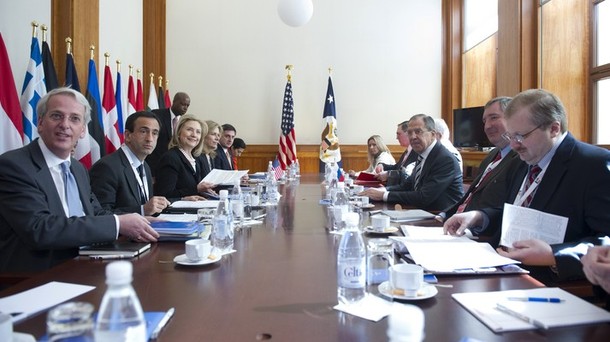
From Julian Lindley-French, the New Atlanticist: The statement is a masterpiece of NATO speak and thus needs interpreting into plain English. This is something that has not been seen at NATO Headquarters since the Scottish occupied it back in the early naughties – it was plain but incomprehensible. …
The “valuable” contribution made by OUP members was noted demonstrating “broad-based” support” for the Libyan air operation. Roughly translated that means: we know there are not enough members doing enough of the right things but that is all you are going to get. The statement goes on, “NATO will continue to coordinate its actions with the United Nations, other regional actors and international organizations”. You can take that as meaning, whilst we might not be able to agree amongst ourselves over the best course of action, we can be pretty sure we can find our particular point of view somewhere in the mythical and rumoured international community. …
But then comes the killer word – ‘robust’. Robust in NATO speak is like the British use of the word ‘interesting’ in diplomatic speak. As you may know the British have several stages of alert ranging from ‘a tad concerned’ when a crisis erupts , to ‘a bit niggled’ when war is declared. However, nothing in the British dip lexicon compares with ‘interesting. Indeed, whenever the British respond to ‘language’ with the word ‘interesting’ it can be thus translated; a load of complete tosh, you cannot be serious and how can you possibly think that. Robust in NATO speak is only deployed when disagreement is critical. Indeed by invoking Article Robust are invited to interpret any and all action as ‘robust’, even if they are not actually doing anything.
Professor Julian Lindley-French is a member of the Strategic Advisor’s Group of the Atlantic Council of the US in Washington, Special Professor of Strategic Studies, University of Leiden, Netherlands and Associate Fellow of the Royal Institute of International Affairs, London. This essay first appeared on his personal blog, Lindley-French’s Blog Blast. (photo: Getty).
Image: nato-ministerial.jpg
